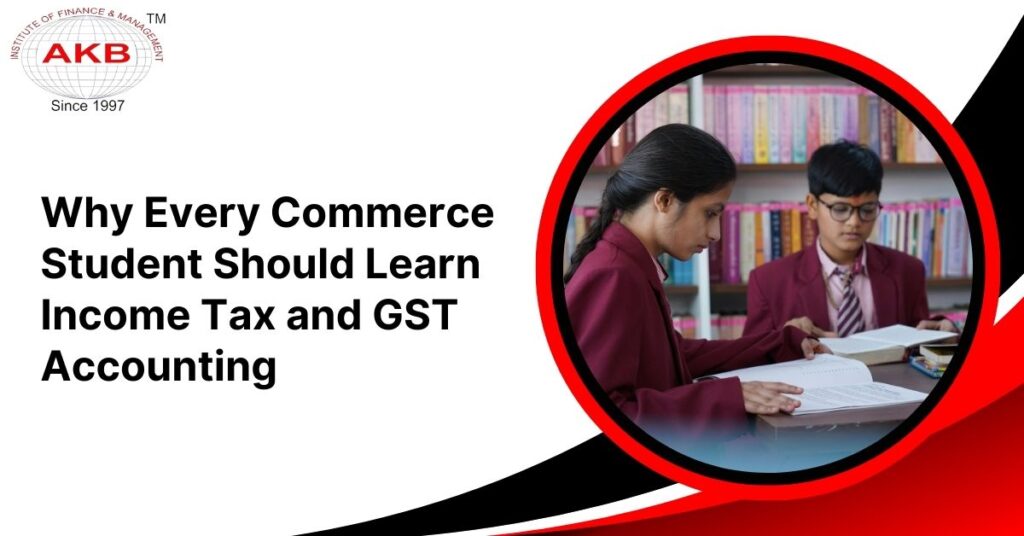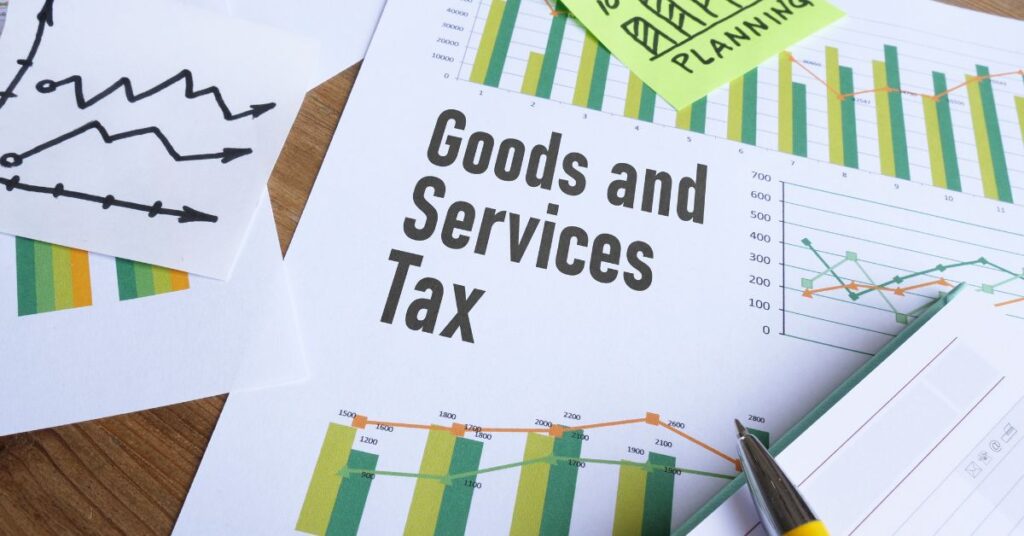
The world of commerce is evolving at a fast pace, and with it, the expectations from students pursuing careers in finance and accounting are also changing. Today, theoretical knowledge alone is not sufficient for success. Employers expect candidates to have practical skills that make them job-ready from day one. Among the most in-demand skills for commerce students are Income Tax and GST accounting. These two areas form the backbone of financial compliance and business operations in India. Understanding them not only enhances employability but also prepares students to meet real-world challenges with confidence.
The Role of Income Tax and GST in the Indian Economy
Income Tax and Goods and Services Tax (GST) are two of the most important aspects of India’s taxation system. Income Tax directly impacts individuals and businesses as it governs how earnings are reported and taxed. GST, on the other hand, is an indirect tax that has replaced multiple state and central taxes, simplifying the tax structure across the country. Together, they shape the way businesses function, how profits are reported, and how compliance is maintained. For commerce students, learning these concepts provides a practical understanding of how taxation influences financial decision-making at both individual and organizational levels.
Why Commerce Students Must Learn Income Tax Accounting
Income Tax accounting is no longer limited to Chartered Accountants or tax consultants. With increasing compliance requirements, businesses expect their accountants to have a working knowledge of tax laws. By learning Income Tax accounting, commerce students gain the ability to calculate taxable income, prepare returns, and ensure compliance with legal norms. This practical skill ensures that they can step into roles like junior accountants, tax assistants, and compliance executives without requiring additional training. Moreover, as tax policies in India are frequently updated, students who have mastered this field become more adaptable and future-ready.
Why GST Accounting Is Crucial for Modern Commerce Students
GST has revolutionized the Indian taxation system by unifying multiple taxes under one framework. Every business, whether small or large, needs to comply with GST regulations. For commerce students, knowledge of GST accounting is crucial because it is directly linked to day-to-day business operations such as invoicing, input tax credit, and filing returns. By learning GST accounting, students become capable of managing real-world scenarios where accuracy and compliance are non-negotiable. The demand for GST-skilled professionals has grown significantly, as organizations prefer candidates who can immediately contribute to managing their tax responsibilities.

Bridging Theory with Practical Application
One of the common challenges commerce students face is the gap between academic knowledge and its application in professional environments. While textbooks provide an overview of taxation concepts, practical training in Income Tax and GST accounting bridges this gap. Students who undergo specialized training learn how to file tax returns using real software, calculate liabilities, and manage documentation. This hands-on exposure enhances their problem-solving abilities and ensures they are ready to handle client or employer requirements confidently.
Career Opportunities with Income Tax and GST Skills
Learning Income Tax and GST accounting opens multiple career avenues for commerce students. They can pursue roles such as tax assistant, GST executive, accounts officer, or compliance associate. These positions are highly valued across industries including manufacturing, trading, retail, and services. As businesses increasingly rely on tax-competent professionals, commerce students who invest in these skills can secure better salaries and growth opportunities. Furthermore, such expertise also allows students to work as freelance tax consultants, giving them flexibility and entrepreneurial opportunities.
Staying Relevant in a Competitive Job Market
In today’s competitive job market, recruiters often prefer candidates who bring additional practical skills beyond their academic degrees. Commerce graduates with knowledge of Income Tax and GST accounting instantly stand out during interviews. They demonstrate that they are not just learners but professionals prepared to take on challenges. This makes them highly employable and reduces the training cost for employers. In a city like Faridabad, where industries and businesses are growing rapidly, having these skills significantly enhances a student’s career prospects.
Building Confidence Through Professional Training
Professional training in Income Tax and GST does more than just teach concepts. It builds confidence in commerce students by allowing them to practice real-world tax filing and compliance procedures. This confidence becomes a valuable asset in interviews and in the workplace. Students who have hands-on training are better equipped to handle responsibilities and adapt to changing tax regulations without hesitation.

The Role of Institutes in Shaping Skilled Commerce Graduates
While self-study is possible, structured training at a reputed institute makes a significant difference in mastering Income Tax and GST accounting. Professional institutes provide experienced faculty, updated course material, and practical exposure that is aligned with industry demands. For commerce students, this ensures that their learning is not limited to theory but extends to practical scenarios where accuracy and efficiency matter most. Training institutes also provide certification, which adds credibility to a student’s resume and strengthens their professional profile.
Conclusion
For commerce students, learning Income Tax and GST accounting is no longer optional but essential. It empowers them with practical knowledge, makes them industry-ready, and enhances their career opportunities across sectors. These skills are not just relevant for securing jobs but also for long-term career growth in finance and accounting. By investing in specialized training, students can bridge the gap between academic learning and professional expertise. Among the many options available, AKB Institute of Finance & Management (AKBIFM) stands out as a trusted training provider that equips commerce students with the right balance of theoretical knowledge and practical exposure. With expert faculty, industry-focused curriculum, and a strong track record of producing skilled professionals, AKBIFM is the ideal destination for commerce students who want to build a successful career in accounting and taxation.


